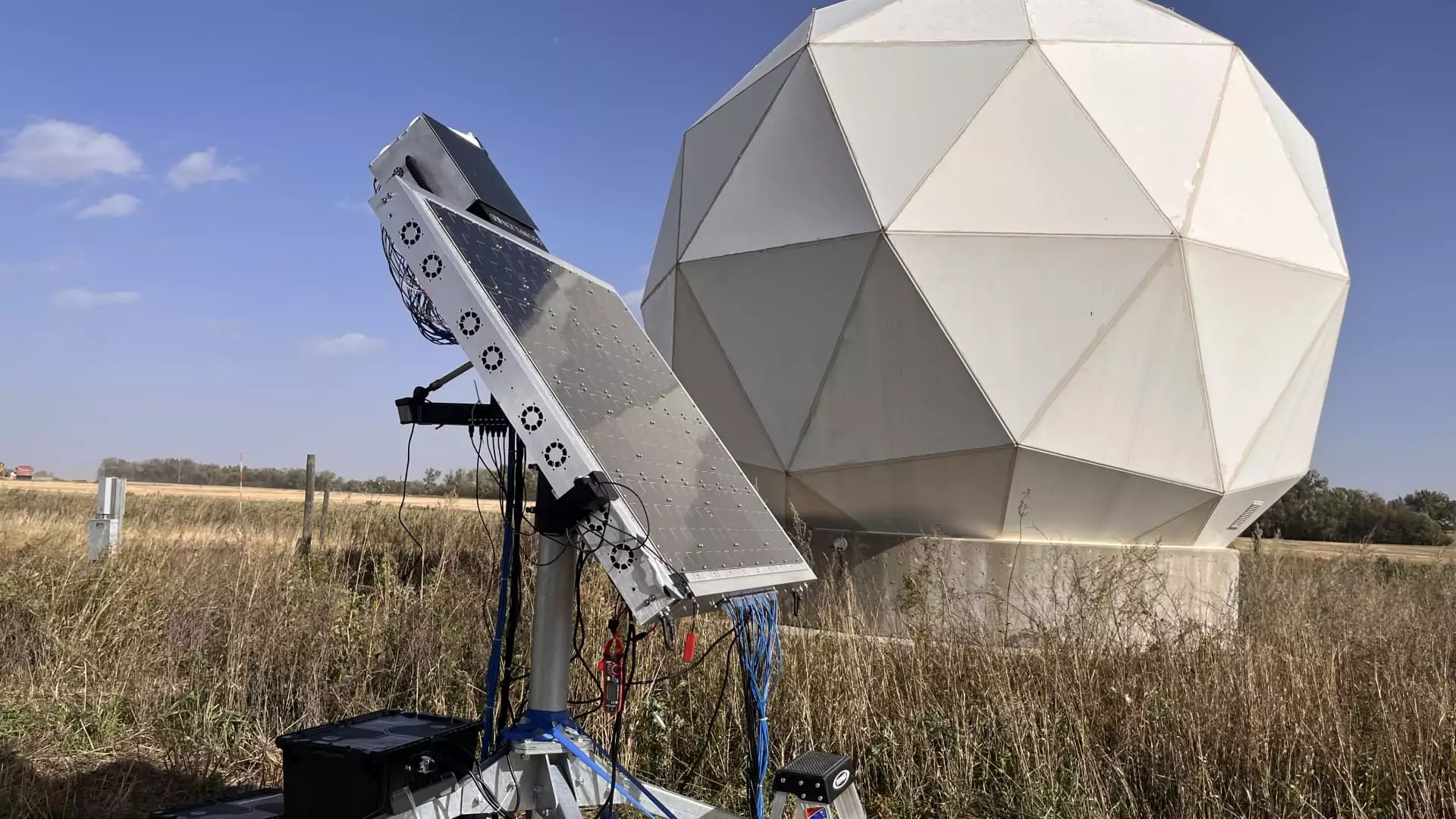In recent years, the surge in interest surrounding space exploration and satellite technology has brought to light the critical role of ground stations in managing these operations. At the forefront of this push for innovation is Northwood Space, a groundbreaking startup spearheaded by former actress and music artist Bridgit Mendler. The company has made headlines by successfully completing a pivotal test—an audacious endeavor in establishing seamless communication with satellites, marking a significant leap forward in space connectivity.
Northwood Space was established as a response to the ever-growing need for efficient and effective ground support for satellite communications. The startup’s core innovation lies in its phased array technology, which Mendler and her team have diligently tested both in controlled laboratory environments and in real-world applications. Operating from El Segundo, California, Northwood is aiming to create a global network of ground stations designed specifically for satellite data transmission, ultimately striving to optimize the current methods used to communicate with satellites in orbit.
Revolutionizing Data Transmission with Portal Technology
At the heart of Northwood’s strategy is its Portal system, a state-of-the-art solution poised to outperform traditional parabolic dish antennas that have dominated the ground station landscape for decades. Current standards, which can connect to only one to three satellites at a time, will be eclipsed by their Portal technology, which is projected to handle up to ten simultaneous satellite connections. Mendler emphasizes that this advancement is not just an incremental improvement, but a transformative shift in how companies will operate and manage their satellite communications.
With the introduction of Ground Station as a Service (GSaaS), Northwood is entering a burgeoning market that has already captured the attention of industry giants such as Amazon with its AWS Ground Station and Eutelsat’s ambitious proposals in ground station management. However, Northwood’s vision extends beyond merely entering the competitive realm of GSaaS—it aims to usher in a new standard for connectivity that eliminates the “age-old” challenges associated with satellite communications, such as connectivity blackouts and exorbitant operational costs.
Mendler draws compelling analogies between the evolving landscape of satellite communication and the historical evolution of the cellular industry. Just as cellular networks transitioned to shared models, Northwood envisions a similar paradigm shift within space technology. By facilitating ground stations as shared assets, the startup hopes to improve operational efficiencies, a move that could dramatically enhance the scalability and resilience of satellite communications.
In Mendler’s view, ground stations form the “third leg of the stool” in the aerospace industry, complementing rockets and orbital satellites. This holistic perspective on space infrastructure is crucial in recognizing the interdependent nature of advancing technologies in orbit and on Earth. With the burgeoning interest in space exploration and satellite deployment, the timing of Northwood’s innovations could not be more pertinent. Mendler asserts, “The industry is at a point where there’s a lot of appetite for growth,” and Northwood is primed to inject fresh energy into this evolving sector.
Successful Testing and Future Expansion Plans
Northwood’s recent testing efforts took place in a remote area of North Dakota, where the prototype antenna, whimsically named “Frankie,” successfully established communication with a Planet Labs satellite. This telemetry, tracking, and control (TT&C) test demonstrated northwood’s capability to maintain a bi-directional connection across both S-band and X-band frequencies, showcasing the system’s potential for reliable, real-time communication between ground and space.
The rapid development timeline for Frankie—completed within just four months and tested six hours after deployment—speaks volumes about Northwood’s efficiency and agility in adapting to the competitive demands of the aerospace industry. As Planet Labs applauded Northwood’s achievement as a significant milestone in ground station technology, the excitement for the future of enhanced satellite connectivity only grew.
Looking ahead, Northwood has ambitious plans to expand its network with multiple Portal sites capable of supporting simultaneous connections of up to ten satellites, achieving data transmission rates exceeding 1 gigabit per second. Currently surveying potential locations in the United States, Europe, Australia, and New Zealand, the company is on track to launch its groundbreaking services in the coming year.
With each successful development and test, Northwood Space is poised to redefine the standards of ground connectivity in the aerospace sector. Bridgit Mendler’s innovative vision coupled with a forward-thinking approach has the potential to reshape how satellites are managed and deployed across the globe. Staring down the formidable obstacles of cost and efficiency in space communication, Northwood stands ready to unlock new capabilities for the next generation of satellites, marking an exciting new chapter in the story of space technology.

